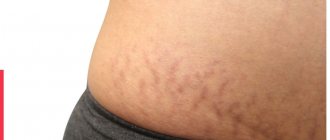10/09/20205 minutes read 3177
Psychological dependence on food is one of the types of mental dependence, such as drug addiction, smoking, and alcoholism. Many experts believe that food addiction, despite its rather harmless name, is a much more complex disease than the above addictions. So, a drug addict can, using willpower, completely eliminate the object of his passion, but we always depend on food. You can't just stop eating.
Food addiction, like other addictions, causes many related problems. From social isolation to premature death due to obesity. Getting rid of addiction is only possible with the help of psychotherapy and nutritionist therapy.
Is food addiction a psychological or physiological problem?
Food addiction is a mental pathology in which a person uses food as emotional reinforcement and a stimulant of physical pleasure. Eating becomes a super value, all other pleasures are pushed into the background. Problems get eaten up, when faced with troubles, a person does not try to solve them, he resorts to food, in an attempt to forget, like an alcoholic reaches for a bottle under any stress.
Important! Only 20% of people addicted to food can cope with this problem on their own. The rest cannot do without a nutritionist, psychologist, or even a psychotherapist.
Who can become addicted to food?
There are people who are at risk of developing eating disorders. Basically, maladaptive eating habits are established in childhood; if genetic and sociocultural factors are superimposed on this, an eating disorder may develop.
- People from dysfunctional families, unloved, raised by rejecting, cold parents;
- Growing up with authoritarian parents, they were forbidden to show emotions, express their own opinions, or have any desires. Such people have broken or completely absent contact with their own “I”;
- Families with unhealthy eating behavior. Parents, usually mother and grandmother, used it as a means of reward and/or punishment. They didn’t let you leave the table until the last piece was eaten, etc. The child could never determine for himself whether he was full or hungry;
- Women, more often than men, suffer from eating disorders;
- Codependents are people living with a sick person - a food addict;
- Pessimists, emotionally labile, overly sensitive, who have suffered serious psychological trauma;
- People with low self-esteem;
- People are depressed;
- Former smokers - replace cigarettes with food;
- People with certain genetic disorders.
Causes of food addiction
Scientists are constantly researching this problem and at the moment there are several hypotheses about the origin of eating disorders:
1. Genetic predisposition
Certain genes are associated with the ability to digest certain foods, produce necessary enzymes, and feel a sense of hunger and satiety.
At least 20 genes have already been described that, in one way or another, affect excess weight, but the FTO gene is still of greatest interest .
This gene was found in mice, and in them it was not associated with excess weight; it encodes a fairly large protein, for which it was named “fatso” - fat man, abbreviated
FTO.
When the human genome was deciphered in 2000 and large-scale research and tests began, during one of the experiments it was found that the lower the level of the FTO
, the higher the concentration of the hormone that increases the feeling of hunger becomes.
Accordingly, the feeling of hunger in people with a mutation in the FTO gene quickly returns after eating, and the feeling of fullness is delayed, which can lead to overeating and frequent snacking
2. Family traditions
One of the main causes of food addiction. The psychology of an addict and eating habits are established in childhood. In most cases, the child cannot choose his own food and decide when he wants to eat. He eats whatever is given and when given. If there were only sausages and mayonnaise in the refrigerator, or it was customary to celebrate every success at a rich table, or he was deprived of lunch for the slightest offense, then the risk of developing eating disorders increases manifold.
Quote "A man is what he eats"
Lucretius
3. Psychological associative factor
This reason affects pessimists, people with a sensitive nervous system, and people who have experienced serious psychological trauma. This is due to the structure of our nervous system. We have a sympathetic nervous system
, responsible for mobilizing internal resources. When we are stressed, solving any problem, our sympathetic system is active, blood rushes to vital organs - the brain, lungs, and peripheral vessels are compressed, including the digestive system.
And there is a parasympathetic nervous system
, which is activated at rest, blood rushes to the stomach and intestines, the lungs begin to work in a calm mode, the pulse slows down, etc.
It’s easy to guess that in people who are excitable, suspicious, anxious, the sympathetic system is constantly on edge; after eating, especially a lot, they forcibly switch the body’s systems - roughly speaking, blood flows to the stomach and flows from the head. The anxiety subsides, the person lies down and peacefully digests food. Once noticing this connection: if you overeat, you stop worrying, a depressed person can develop a food addiction.
4. “Misseted settings” of food receptors
It's a kind of chemical dependency in some way. The reason in this case is not a change in the biochemical functioning of the body, but the degree of impact on the receptors. Having become accustomed to processed, refined, “artificial” food—sweet soda, fast food, industrial sweets, flavor enhancers, smoked foods—our receptors are not sufficiently irritated by the taste of unprocessed foods.
Fruit is not sweet enough, chicken breast is too bland, homemade bread may taste sour, etc.
5. Brain Chemistry
Sugar affects the pleasure centers in our brain, just like alcohol and drugs. Never before has refined sugar been so accessible, and never before has our brain been able to get so many cheap carbohydrates at once. Few people are able to voluntarily give this up. This reason is also due to our origin - our brain is, in fact, the brain of an ancient person, and he did not get a lot of food every day. And when the brain sees a lot of food, and even high-carbohydrate food, it tells us “Eat, eat more, tomorrow we may not find that much food.”
6. Sociocultural reasons
The scourge of our time is that society sets very strict standards of beauty, imposes a certain picture of life in which appearance plays almost the main role. Yes, it has always been like this, certain bodies, noses, hairstyles were in fashion, but it never affected:
a) all layers of society
b) it was not so unified and homogeneous
c) it wasn’t so aggressive
These requirements cause a person to experience serious dissonance with himself if he cannot fit into these standards. A person cannot perceive himself as he is, and this gives rise to stress and the desire to “eat up” this stress.
In this regard, the body positive movement, despite its excesses, is an unconditional blessing. People are different and look different; you can’t bring everyone to the same standard, like a dog breed.
How to tell if you have a food addiction
You keep eating even when you're full
The mere desire to continue eating after you have already finished a full meal does not indicate frustration.
For example, it's normal to sometimes want ice cream after steak, potatoes and vegetables. However, if this happens systematically and you cannot control yourself, then you are probably talking about Binge Eating Disorder and Food Addiction. The Lifehacker Telegram channel contains only the best texts about technology, relationships, sports, cinema and much more. Subscribe!
Our Pinterest contains only the best texts about relationships, sports, cinema, health and much more. Subscribe!
The brain requires new portions of food not to restore energy reserves, but to receive the reward hormone dopamine.
In severe cases, you simply cannot stop until the food runs out or you begin to experience terrible discomfort. The stomach is filled to capacity and seems to explode if you eat another bite.
You eat more than you planned
You've probably encountered people who easily refuse a second helping of something delicious. Moreover, they may not even eat the first portion if they did not plan this in advance.
For some, this approach to food looks like a feat. And if you take a piece of cake and then find yourself in front of an empty box, it's definitely an addiction. The same mechanism is at work here. Current considerations regarding food addiction as with drug addiction: the concept of “moderation” simply does not exist. And accordingly, telling a food addict to eat a little less is almost the same as asking an alcoholic to drink less often.
You feel guilty but continue to overeat
You not only eat too much, but you also realize that it is wrong and harmful. But remorse does not make the situation any easier.
You find yourself in a vicious circle in which you feel good and happy only when there is a plate of delicacies in front of you. The rest of the time you suffer. Isn't this a signal to go out and eat again to feel happy?
You make up excuses to eat
You have decided to take the path of moderation, but sooner or later food cravings will make themselves felt. And bargaining will begin in your head, during which you will come up with a million arguments why you can break your promises.
For example, today is a holiday, you had a bad day that needs to be “sweetened,” or, conversely, a successful one, and this should be celebrated... In a word, you have a million reasons to eat the forbidden, and they all sound so logical, so rational that there is no reason resist.
You hide food from others
When your relationship with food is not going well, you realize that it would be better to hide it from others. You can sneak into the refrigerator at night, hastily eat a chocolate bar on the way from the store to your home, or carry a supply of unhealthy foods in your car.
This point directly echoes the previous one, the only difference is that the strength of the feeling of guilt increases many times over.
Are you looking for excuses to lose your temper?
Sometimes people who quit smoking deliberately create a stressful event so that they can return to smoking. For example, they initiate a scandal with a wife who insists on giving up a bad habit in order to go to the balcony with a clear conscience, and then say that it was her fault that she brought it up.
With food, such situations are also possible, and if you simulate situations in order to overeat with a clear conscience, and then shift the blame for this onto someone else, then this speaks of addiction.
You overeat despite health problems
Sooner or later, indiscipline in eating will lead to health problems. In the short term, this may be excess weight, acne, fatigue, in the long term - diabetes, Alzheimer's disease, problems with the cardiovascular system.
And in this case, it would also be appropriate to compare overeating with drug addiction: you know that your addiction is slowly killing you, but you cannot escape from its networks.
You turn down meetings and parties because of food.
You can no longer turn a blind eye to the problem, and you begin to avoid meetings and celebrations where food may be present. For example, you don’t go to celebrate your beloved grandmother’s birthday because you know that you can’t resist her fatty cutlets and delicious cake. And this will lead to another round of overeating and guilt.
Consequences of food addiction
As with any addiction, for people suffering from food addiction, the manifestations of the disease and its consequences for physical and mental health can be serious and long-lasting:
- Diabetes;
- Obesity;
- Problems with the heart and blood vessels, strokes, heart attacks, hypertension, arrhythmias, etc.;
- Oncology: the risk of breast, uterine, and colon cancer increases;
- Gastrointestinal problems;
- Diseases of the spine, joints, musculoskeletal system, unable to withstand increased loads;
- Complications during childbirth;
- Difficulties with reproductive function;
- Poor drug tolerance;
- Thrombosis;
- Slow wound healing;
- Gangrene;
- Premature aging;
- Psychological problems: low self-esteem, social isolation, depression
Types of food addictions
There are several types of eating disorders:
- Bulimia
- Anorexia nervosa
- Compulsive overeating
- Binge eating
- Orthorexia
Actually, food addiction “addiction” only refers to compulsive overeating and bulimia. Orthorexia can also be included here, with some reservations.
Quote: “Eating is a necessity, but eating wisely is an art.”
Francois VI de La Rochefoucauld
Compulsive overeating
A person eats until he feels sick, until he feels like his stomach is about to burst, and after this “food binge” he sinks into guilt and shame.
Signs of compulsive overeating:
- Overeating becomes uncontrollable;
- Food consumption is not associated with feelings of hunger;
- All thoughts are only about food;
- After overeating, feelings of guilt and shame arise;
- Goes into seclusion to eat.
Bulimia nervosa
A person also uncontrollably eats a huge amount of food, but unlike the first type, he then gets rid of what he ate by vomiting, enemas, and taking laxatives.
If with compulsive overeating a person gains weight very quickly, then with bulimia this danger is less, but the risk of causing disruptions in the gastrointestinal tract is much higher. Metabolism, stomach acidity, intestinal microflora are disrupted, the condition of teeth, skin, and hair worsens.
Orthorexia
Food addiction occurs in the form of a selective attitude towards the choice of food products.
- Strict selection of products, according to what a person considers healthy;
- Products from the “unhealthy” list are strictly prohibited;
- Obsession with “fashionable” diets, trends such as raw food diet, veganism, biohacking, healthy lifestyle;
- Willingness to break off friendly and even family relationships with people who do not share his beliefs.
Start working with a psychologist right now
Start a consultation
Eating disorders: addiction of the 21st century?
Author: Angelika Demina, scientific editor of SMT
Editor: Maxim Ivannikov, scientific editor of SMT
Bulimia, anorexia, overeating - everyone has heard these names at least once. In this article we tell you what it is, what the symptoms are and how it all relates to mental processes. How can food become a drug? Why is “just being” not so simple? How are the eating disorder statistics rising? And why might you be at risk too?
RPP: types and symptoms
Eating disorders, also known as eating disorders, are a class of mental disorders associated with eating disorders. This is when a person cannot “just eat” or “just not eat.” Typically, in a patient with eating disorder, food takes up too much space in the head, causes obsessive thoughts and fears, as well as behavior patterns that are dangerous to health. Food (and food control) in this case acts more as a tool for suppressing anxiety, stress and implementing perfectionism, and not as an end in itself.
The most common eating disorders:
- Anorexia nervosa / Anorexia nervosa . Symptoms: strong fear of gaining weight (even if the current weight is already so low that it is dangerous to health); excessive influence of body shape on self-esteem; consumption of critically small amounts of food. As a rule, a patient with anorexia has a body weight below normal, but this is a consequence rather than a condition for diagnosis. There is also atypical anorexia - this is when all the symptoms are present, but body weight is normal. Read more at the link here.
- Bulimia nervosa / Bulimia nervosa . Symptoms: repeated episodes of overeating large amounts of food, often in secret from other people; feeling of loss of control while overeating; shame and guilt; compensatory behavior - spontaneous induction of vomiting after eating, taking laxatives, diuretics, etc. Read more here.
- Compulsive overeating / Binge eating disorder . Symptoms: repeated bouts of overeating with the absorption of large amounts of food; feeling of loss of control while overeating; shame and guilt; Unlike bulimia nervosa, those suffering from CP often lack compensatory behavior. Read more here.
Eating disorders distort a person's perception and affect the psyche in the long term. Therefore, treating a person with such disorders is a difficult and long process.
Beginning as a mental disorder, eating disorders subsequently affect physical health - disruptions occur in the hormonal system, the functioning of vital organs is disrupted, which in advanced cases can lead to death. The mortality and suicide statistics for anorexia nervosa and bulimia nervosa are not very encouraging.
Read about common myths about eating disorders here.
How to upset eating?
Let's talk about the formation of a cycle of food addiction and disruption of the hunger-satiety mechanism.
When a person begins to lose weight due to dissatisfaction with his figure, the whole process begins with the desire to “fix” something in himself. The thought “I'm wrong because I'm fat” can spread to other areas of life.
Explicitly or indirectly, a person begins to measure his success, popularity in society and benefits through the assessment of his own figure, his body. “Healthy” food becomes “good”, allowed, and “harmful” food becomes “bad”, it is strictly prohibited.
If the diet has been violated, the feeling of guilt forces you to control your eating behavior even more stubbornly... And once again, control fails. Thus a closed cycle appears. For some people, it can become a real cycle of addiction. For example, with compulsive overeating, the following cycle can form:
In addition, in people with eating disorders, the mechanisms of hunger and satiety are disrupted over time. What seems trivial to a healthy person (“just eat and that’s it!”) can become a real challenge for a person with bulimia or anorexia.
Let's say someone for a long time suppressed natural urges to hunger and experienced fear in relation to food. It would be appropriate to say that such a person simply “forgot how” to eat—to eat “normally.” This complicates the treatment process, since you have to relearn how to feel your body, recognize its signals and work with your emotions.
The development of eating disorder is accompanied by unhealthy behavior scenarios , among them:
- systemic suppression of hunger;
- following a strict meal schedule;
- division of food into “good and bad”;
- exclusion of food groups from the diet (here excluding cases of allergies, real intolerances, and therapeutic preventive nutrition);
- punishments for “breakdowns” through training and fasting;
- stress eating and so on.
Risk groups: eating disorder statistics
Problems with food do not only affect certain groups of the population. It is believed that the main target audience of RPP is women 14-25 years old, usually from developed countries. Because of this, a stereotype has mutated in society: that only “white rich girls” suffer from eating disorders, mainly in the West, they say, because of a good life. This is wrong.
Nutritional problems also occur among low-income people who suffer from nutritional deficiencies. Food is not always available to such people, and sometimes they have to go hungry. And this can lead to the development of various eating behavior pathologies.
In one study, people with low incomes were interviewed - these are 503 volunteers who receive food mainly through social cards. More than half (65%) are Hispanic. Thus, symptoms of compulsive overeating were noted by 23% of respondents. If we talk about the clinical picture as a whole, then 17% of participants had all the necessary symptoms for a diagnosis of an eating disorder.
As for gender, it’s true that women, on average, suffer from eating disorders more often than men. But! This does not mean that such a problem does not exist among the male population.
Due to the unfortunate stereotype that eating disorders are a “female” disease, there is suppression and denial of the problem among men with eating disorder symptoms. This has fueled an increase in morbidity among this group over recent decades.
Currently, according to public research and surveys, about 25% of people with eating disorders are men. But here are indicative data from clinics: there the number of men from the total sample was 10%. This suggests that in real life, a large number of men with eating disorder symptoms are likely not seeking help.
Scientific articles note that recently the rates of eating disorders have been increasing in the world. One important factor is the popularity of low-calorie diets.
It is believed that people who moderately practice different diets are 5 times more likely to develop an eating disorder than those who do not diet. It is also known that dieting increases the risk of developing symptoms of bulimia, since physical and emotional exhaustion often occurs with severe dietary restrictions.
There is one interesting study. They studied young people who tried crash diets and unhealthy dietary restrictions as teenagers to lose weight. 5 years after graduating from school, they were surveyed - more than two and a half thousand men and women completed the survey.
The study found that dieting and excessive eating and weight control predicted obesity and eating disorder outcomes after 5 years.
Is eating disorder an addiction?
Eating disorders are an addiction, that is, dependence. Exactly the same as addiction to alcohol or drugs. Researchers note that up to half of people suffering from an eating disorder are prone to substance or alcohol abuse.
These statistics are accompanied by research into the dopaminergic system in women suffering from binge eating disorder. Hypotheses that binge eating disorder and bulimia involve the same “pathophysiological mechanism” as substance use disorders are currently being discussed.
All this leads to the idea that eating disorders may be associated with a risk of drug addiction. But the fact that food itself can turn into a “drug” is not surprising. Such tendencies are a natural consequence of inherited culture.
conclusions
In recent decades, eating disorder has affected more and more people around the world. At some point, dangerous diseases even began to gain unhealthy popularity due to the romanticization of mental disorders. But there's nothing romantic about it. Eating disorder is not a joke and not a way to attract attention. These are perception and mental issues that need to be addressed.
People suffering from an eating disorder should start by recognizing the problem and seeking professional help. Relatives and friends should understand and support, because this is an important moment in rehabilitation.
There is no shame in the fact that food has become a tool for suppressing anxiety. The environment in which we live creates all the conditions for this. The boom in gastronomic production in developed countries plus pop culture with glossy ideals is already an explosive mixture for the development of an inadequate attitude towards food and one’s body.
Perhaps the idea of accepting your body in nutrition and life is a necessary measure in the modern world? Moreover, it is also important in order to build a truly beautiful and healthy figure.
Therefore, if you have problems with diets and the perception of food, even without the stage of disorders, the formation of an adequate perception of your body and food is vital.
Symptoms of food addiction: 7 main signs
Food addiction develops gradually, the symptoms of this type of addiction are similar to the symptoms of any other addictions, including alcohol, nicotine, and drugs.
1. Loss of control
There is no feeling of satiety, food is not associated with satisfying hunger, it acts as a resolver of emotional problems. The main thing is not the taste of food, but the process of its absorption itself.
2. “Drug products” appear
Those foods that a person can eat without a sense of proportion are usually foods with a high glycemic index. They activate the “reward system” in the brain and increase the production of the neurotransmitter dopamine. Often a person keeps a supply of such food at home, just as an alcoholic keeps a hidden bottle at home.
3. There are always excuses for breakdowns.
"There's no reason not to drink"
In this case, don’t eat. I finally decided to go on a diet, exercise and lose 2, 3, 15 kilograms. But today is such a good day. Or bad. My son passed the Unified State Exam. Or didn't pass. You need to buy a cake, drink tea - calm down/celebrate.
4. Feelings of guilt arise
After overeating, the patient always experiences a feeling of guilt; the only thing that occupies him is the thought of how to get rid of food addiction forever.
Please note: As in the case of alcohol, many people can overdo it, but only the alcoholic wakes up with both a hangover and a feeling of guilt.
You can overeat everything during the 10 days of the New Year holidays, but it won’t even occur to you to reproach yourself; rather, this is a reason for jokes and memes. Not so for food addicts. They overeat and suffer.
5. Secret meals
If you start eating in secret, hiding boxes of chocolates from your loved ones, if you eat a salad leaf while visiting your aunt, and then run home and overeat, this behavior is a reason to be wary.
6. Constantly thinking about food
A person suffering from food addiction constantly thinks about food, about how to prepare it, about how he will finally eat from the heart. After work, he can’t get home, so he runs into a cafe to have a snack.
7. You continue to take risks with your health.
Three doctors said it was time to lose weight; my blood sugar had risen to critical levels. Doesn't that stop you from eating a third cake? Yes, that's it - addiction.
The first signs of food addiction
1. Food is your reward.
If you have completed some work and decided to buy yourself a delicious chocolate bar for it, then know that you have already trained yourself on a psychological level to perceive certain food as something long-awaited and rarely received.
2. Wine while eating.
Do you drink a sweet milkshake and only think about the amount of fast carbohydrates in it? Is this about you? Surely, you are then horrified by what you did and blame yourself for another breakdown; if so, then you are addicted.
3. You eat when you are not hungry.
Fatigue, anger, anxiety, sadness - only a piece of cake or a delicious pork chop saves such people from all these emotions. It's time to panic.
4. You go on diets and then relapse.
Food addicts often try to control their trips to the refrigerator. But they don’t really succeed – they break down. A weekly cheat meal is followed by a low-carbohydrate diet, then again a breakdown in unhealthy foods, and so on in a vicious circle.
Food addiction test
Test yourself and answer a few questions to see if you have signs of addiction:
- After losing weight, do you quickly gain back the lost pounds?
- Do you often think about food?
- Do you have an obsessive desire to count the calories of the foods you eat?
- Are there any foods that make you want to eat more of them?
- Do you weigh yourself often?
- Can you consume a large amount of food in a short time?
- Do you ever feel like after eating a small portion you lose control and start eating to excess?
- Do you have problems with emotions and feelings that may be associated with eating or not eating?
- Does the amount of food you eat depend on whether you are with a group or alone?
- Do you often find yourself in situations where you reward yourself for success with certain products?
- Do you feel guilty after eating food?
If your answer to the test results in more than 5 “yes” answers
, it’s time to talk about this with a specialist - a nutritionist or psychologist and start getting rid of food addiction.
How to get rid of food addiction: expert advice
Food addiction is quite difficult to overcome, especially if it lasts for a long time, if its psychology is deep in childhood, and if there is a genetic predisposition. But difficult does not mean impossible.
- First you need exclude diseases
leading to uncontrolled weight gain and overeating, that is, undergo a full medical examination.
- Costs analyze your lifestyle
and prospects for the development of events: What will happen to me if I continue to eat as I do now? In 5 years, in 10? Why can't I stop?
- Need to build a power system
in a new way, it is unlikely that you will be able to do this on your own. In most cases, you cannot do without a nutritionist and psychotherapy.
- Important find the root cause
, which almost always lies in the psyche. Psychotherapy will help, including online psychological help. Now it is available, and for many people suffering from obesity it is a salvation. People don’t want to leave the house again when they see (or they think they see) judgmental, contemptuous looks - this causes stress, stress leads to overeating and even greater isolation. An online psychologist can help break this vicious circle and overcome addiction, start therapy.
- Search new sources of pleasure
, hobbies, interests, this will save you from a painful obsession with food.
- Play sports.
Physical activity releases endorphins and affects the pleasure centers.
Important! In the most severe cases, when time is lost and the addiction has gone far, it is necessary to use drug therapy, medications that relieve the desire for food. But only a specialist can prescribe them.
The first step in treating food addiction is recognizing the problem.
Until you trace the connection between eating behavior and food addiction, until you accept it as a disease, until you admit that it is based on a serious psychological problem, all attempts to lose weight, overcome addiction, overcome overeating, and give up junk food will not bring you what you want. effect. Breakdowns will happen again and again. Getting rid of a problem begins with recognizing it.
Food addiction is a serious disease, and it is very difficult to cope with it on your own. The psychology of an addicted person changes greatly. Don’t be afraid to seek help from specialists - online psychologist, nutritionist, psychotherapist. They are necessary in treatment.
Start working with a psychologist right now
Start a Consultation
On your path to recovery, follow these tips to successfully overcome food addiction.
Tip #1. Replace unhealthy foods with healthy alternatives
Eliminate all refined foods, replace them with healthy foods, retrain your taste buds. Learn to enjoy the natural taste of food and clean water. Check out your refrigerator and kitchen cabinets. Without pity, get rid of everything harmful and dubious. Remove temptation from home, and when you want dumplings with mayonnaise at 3 am, let you have only healthy food in the refrigerator.
- All foods with fast carbohydrates: candies, cakes, pastries, sugar, soda, etc., replace them with fruits, dried fruits, homemade marshmallows.
- Products high in palm oil, trans fats: fried potatoes, chips, lard, sausage, fast food, replace this with healthy fats - raw nuts, fatty fish, avocado, olive oil.
- Semi-finished products, they contain too much salt, sugar, flavor enhancers. Try to cook yourself, make simple preparations and freeze.
“Don’t eat anything that your great-great-grandfather wouldn’t recognize as food. There are a lot of food-looking products in the supermarket that your ancestors would not have recognized as food. Stay away from them"
Michael Pollan
Tip #2. Plan your diet in advance
Write down your grocery lists before going to the store; don’t go there on an empty stomach. Make a menu for the week and buy strictly according to the list and according to the plan. So you simply won’t have anything to eat.
Tip #3. Take a break
Something terrible has happened and your feet are already carrying you to the refrigerator, stop, think - are you hungry, or do you need consolation? Come up with something new for yourself as an emotional boost. Wrap yourself in a mental blanket - it’s big, fluffy, it will warm you and give you protection.
Tip #4. Physical exercise
Sport is a really good antidepressant. By exercising, you utilize stress hormones - cortisol and adrenaline, and produce happiness hormones - dopamine and endorphins. Run your in-house chemistry lab.
Tip #6. Drink more water
Drink as soon as you feel hungry. Most of the time we confuse hunger and thirst. Drink at least 1.5 liters of clean water per day. You need to help your body flush out waste products, cleanse cells and improve the functioning of all organs.
Tip #5. Turn on logic
When you go to the store, remember that specially trained people laid out the products in this way, and marketers and designers thought through the packaging. A huge number of people worked to get you to buy that box of cookies. In itself, it is not necessary and even harmful to you. Use logic when thinking about how to get rid of your food addiction - go against the system.
How to deal with food addiction
Some people need psychological help to cope with an eating disorder. But before you go to the doctor, you should try to get rid of it on your own. How?
You must understand: eating cannot help your problems.
No problem will disappear if you look for its solution in the refrigerator. The next time you intuitively reach for food to numb your emotions, hold back the action and pour water instead and sip it. This process will give you a few seconds to control the impulse.
Don't eat out of boredom or for company.
This is the most common reason why people develop a psychological addiction to food. We often eat away our boredom with a pack of chips or cookies, and almost every trip to a cafe we order food with friends, even if we are not hungry. But you can simply skip the dishes by ordering a glass of freshly squeezed juice or smoothie.
Stop prohibiting yourself from everything.
Sometimes permissiveness has the opposite effect. You don't think about food, you can eat whatever you want. And there is nothing to control and there is no stress if this control is broken.
Change the environment.
Rearrange your home, change the photo frames on your desktop, go to the countryside for a couple of days. Even small changes can help you overcome the habit of constantly reaching for something tasty.
Pause while eating.
Do not forget that the feeling of satiety does not come immediately. Eat as slowly as possible so as not to fill your stomach.











